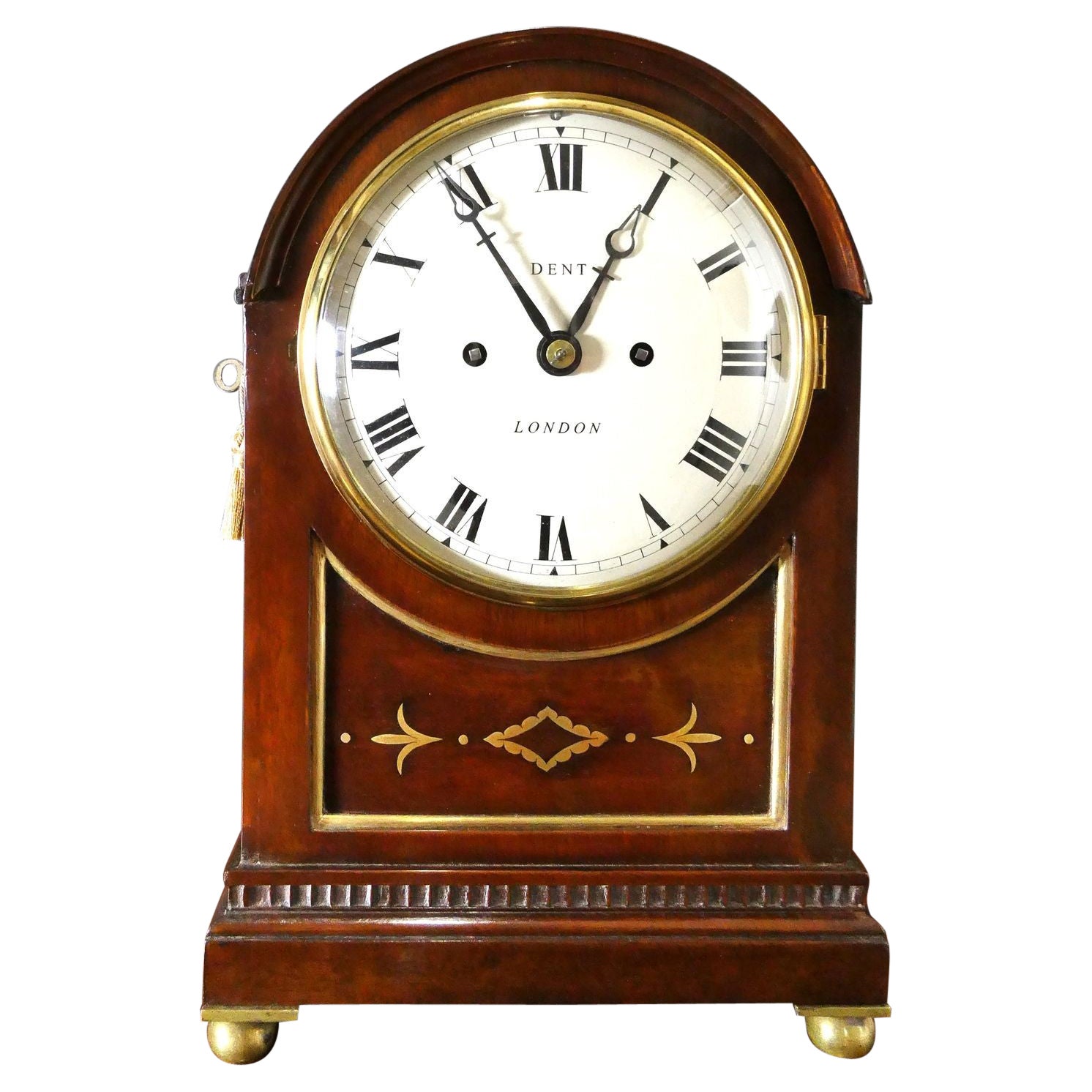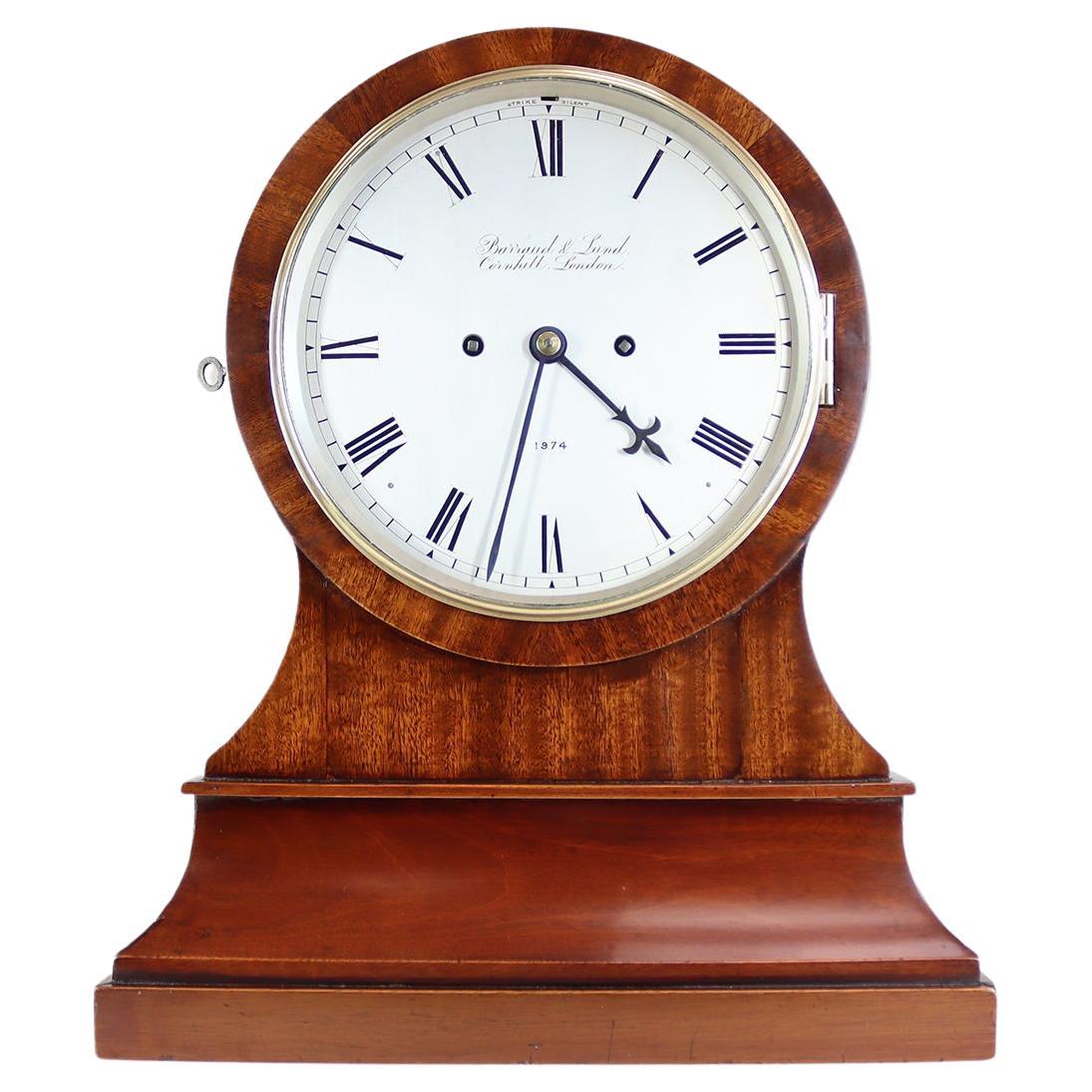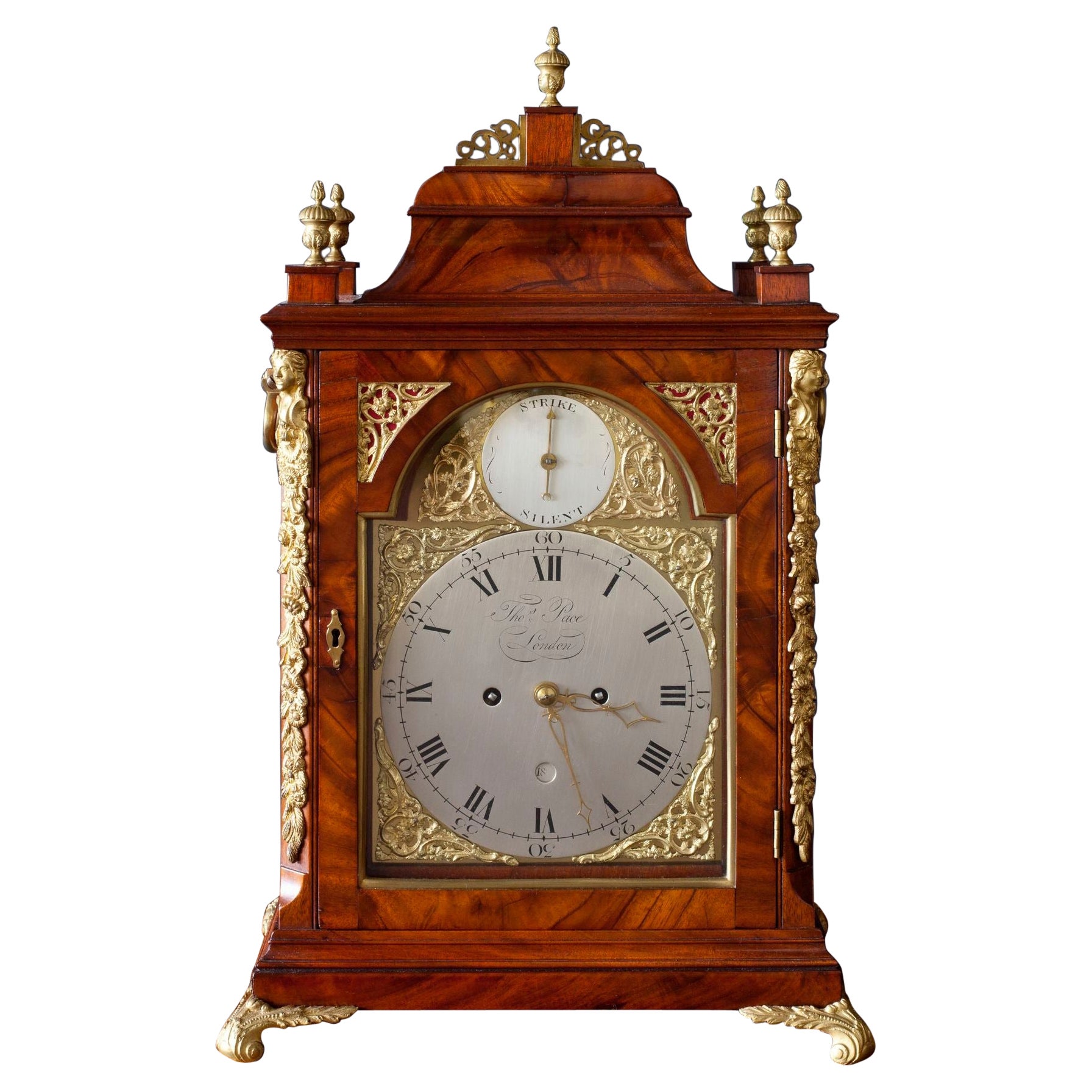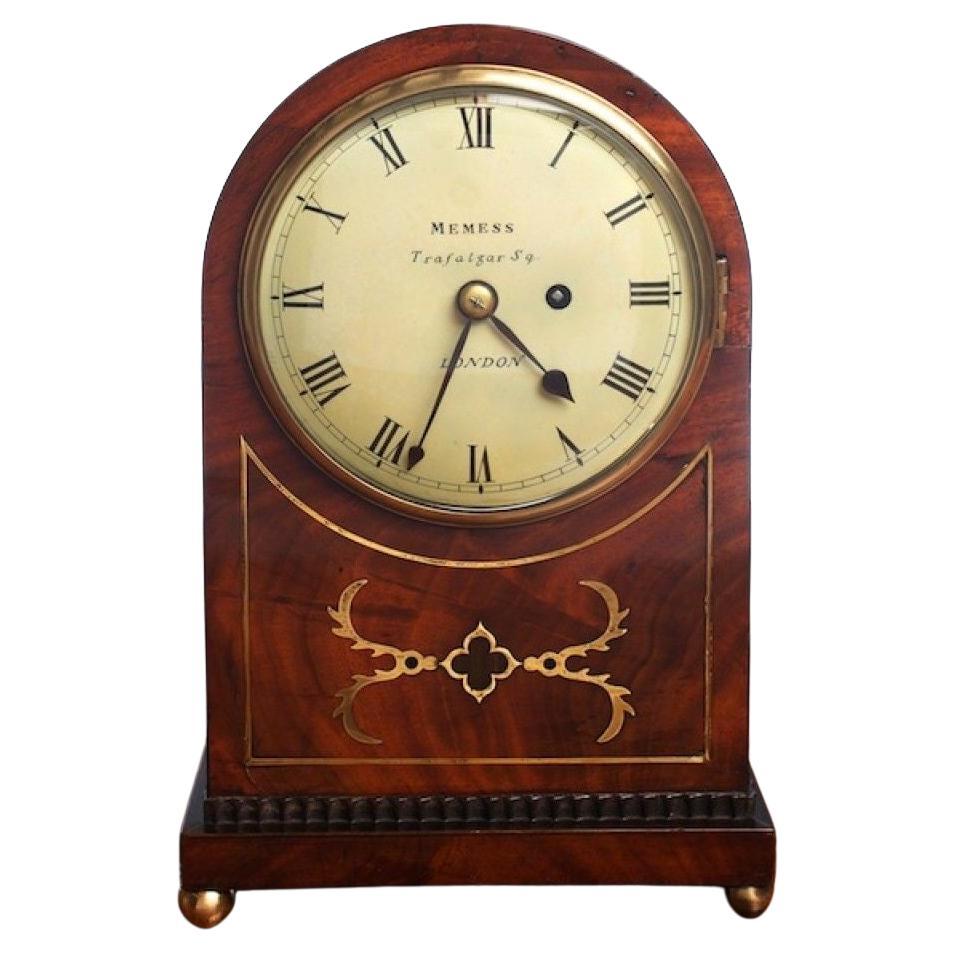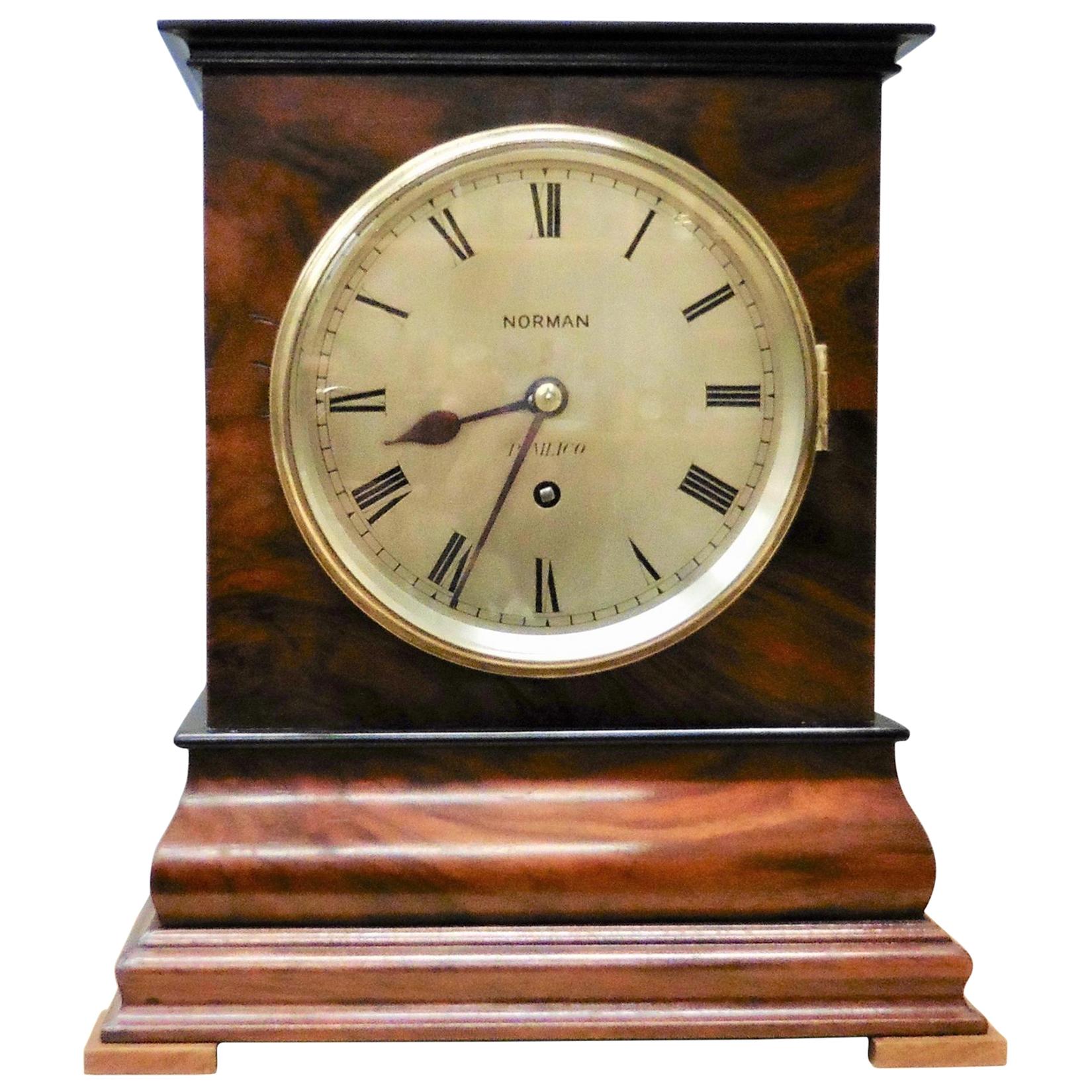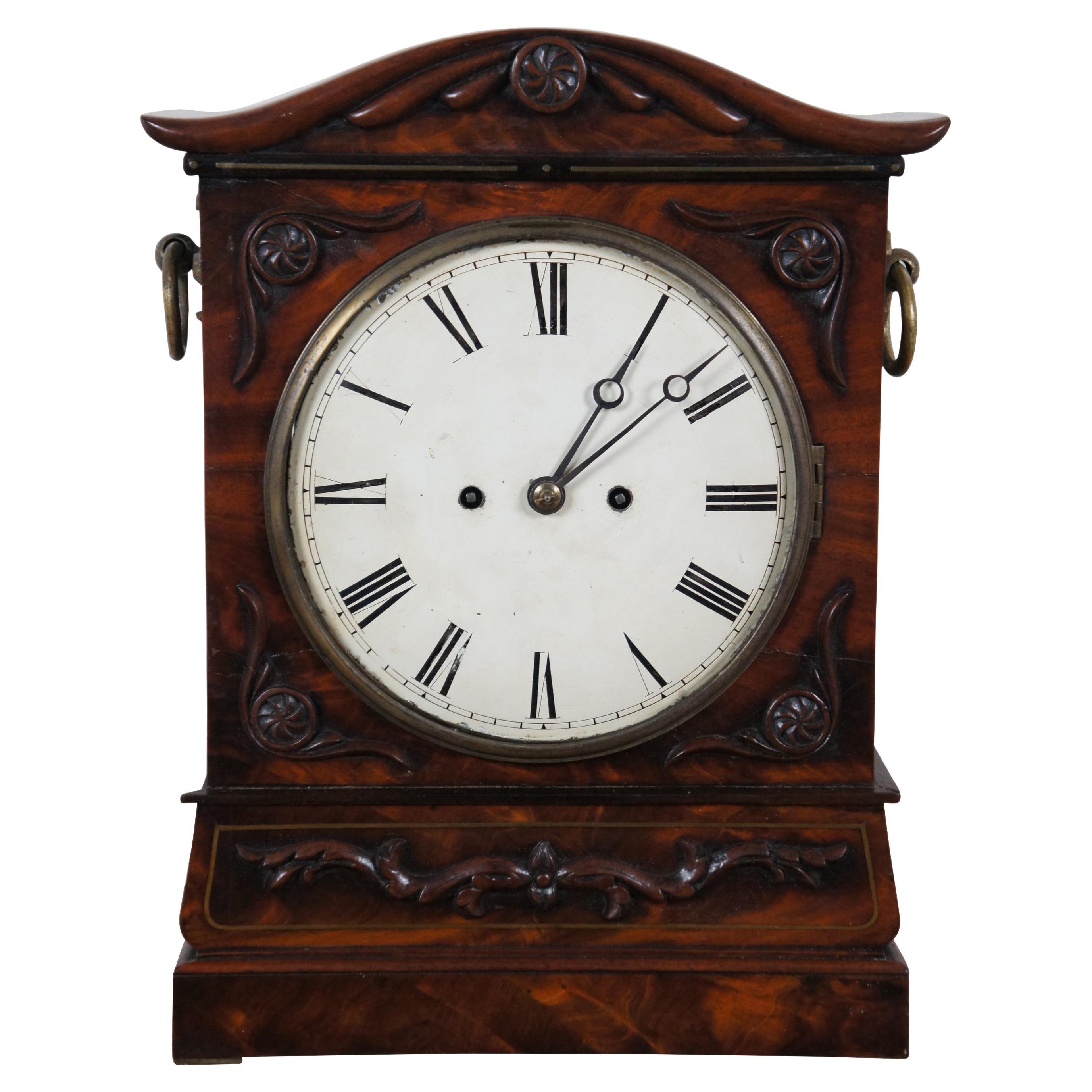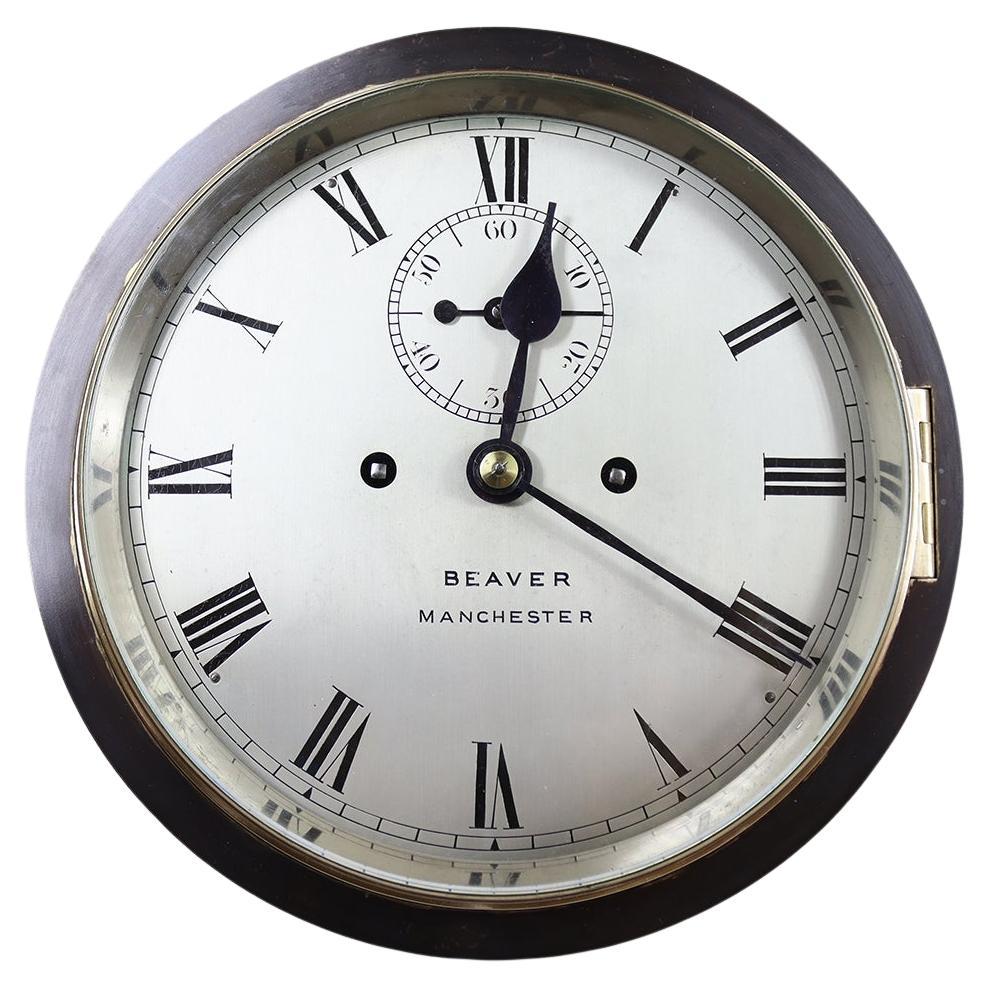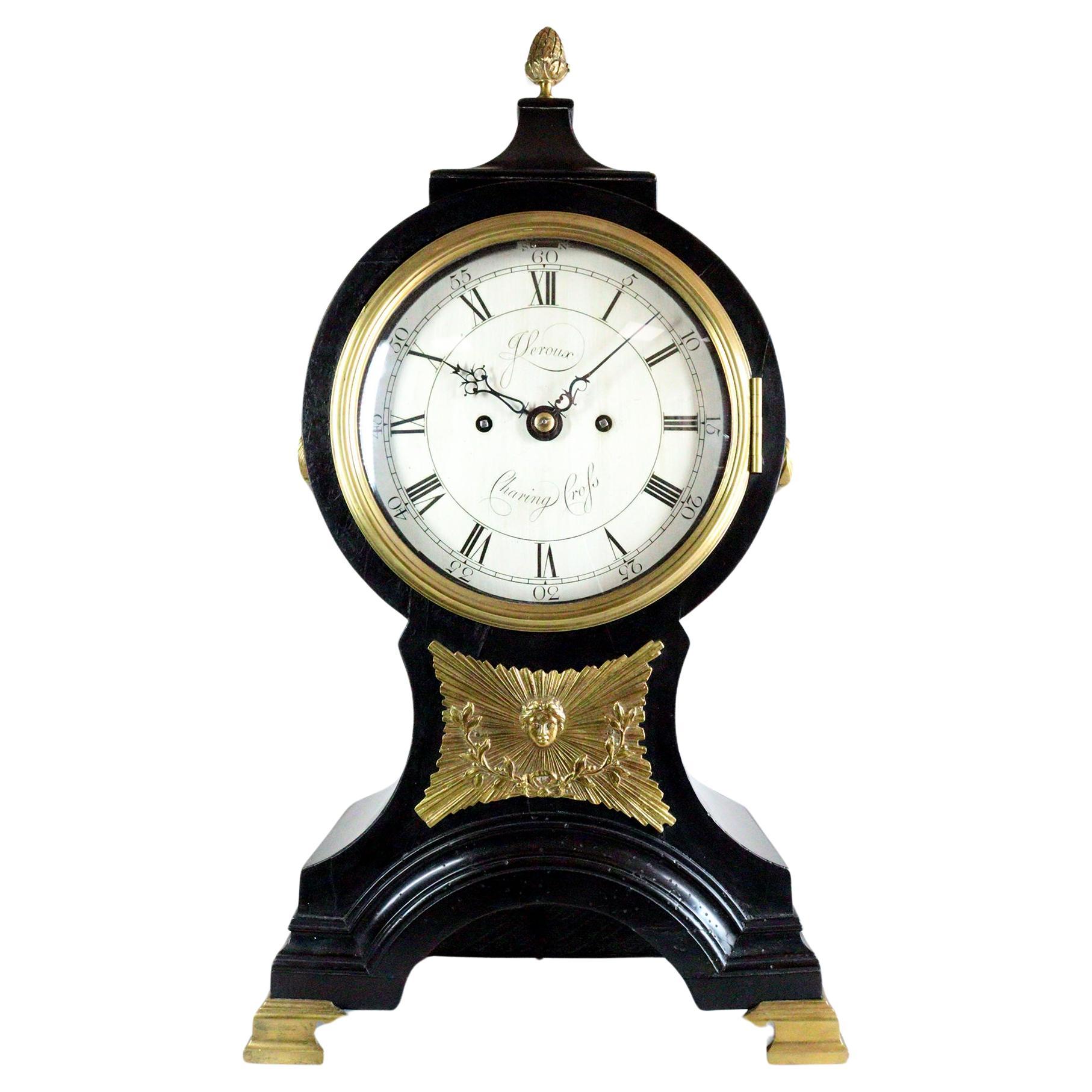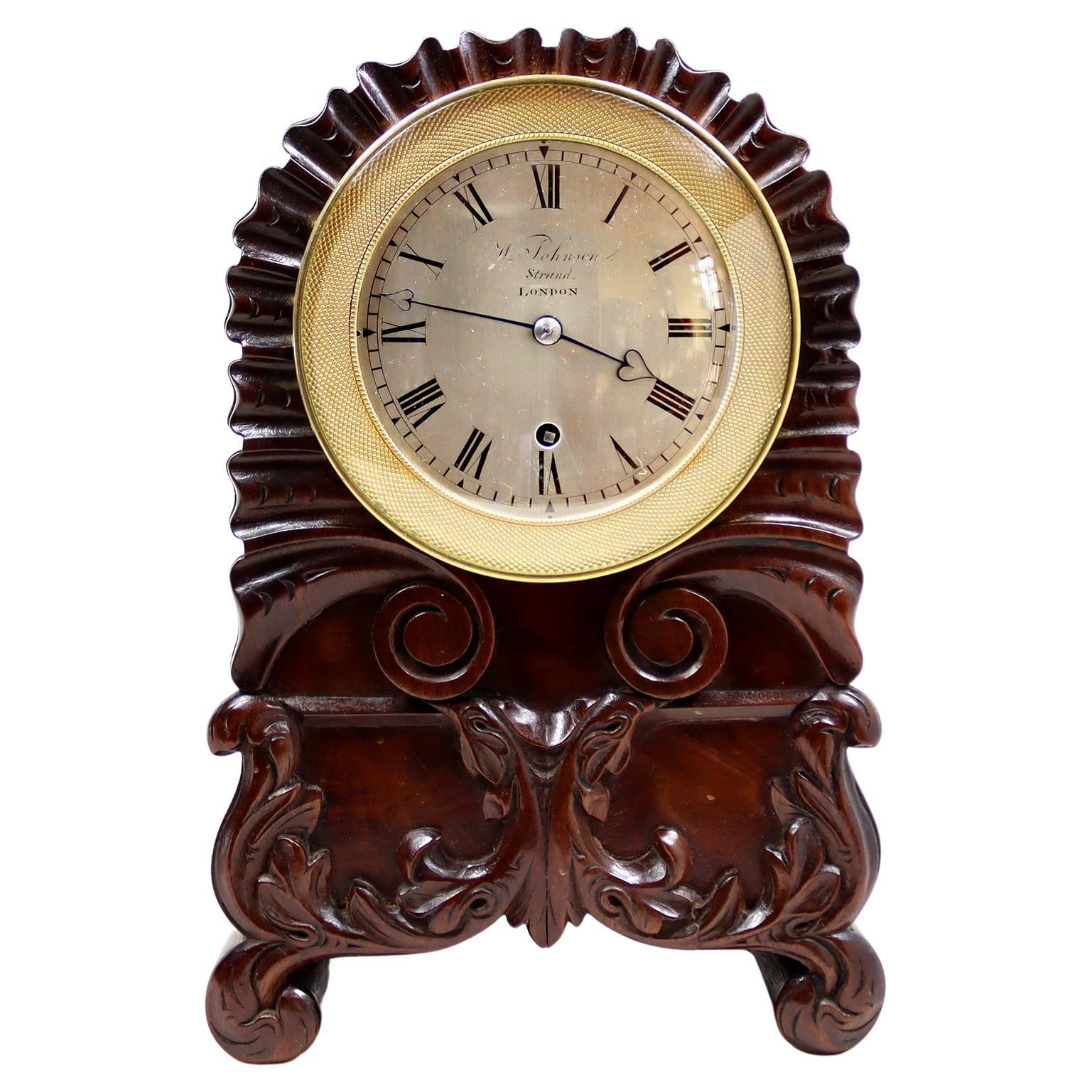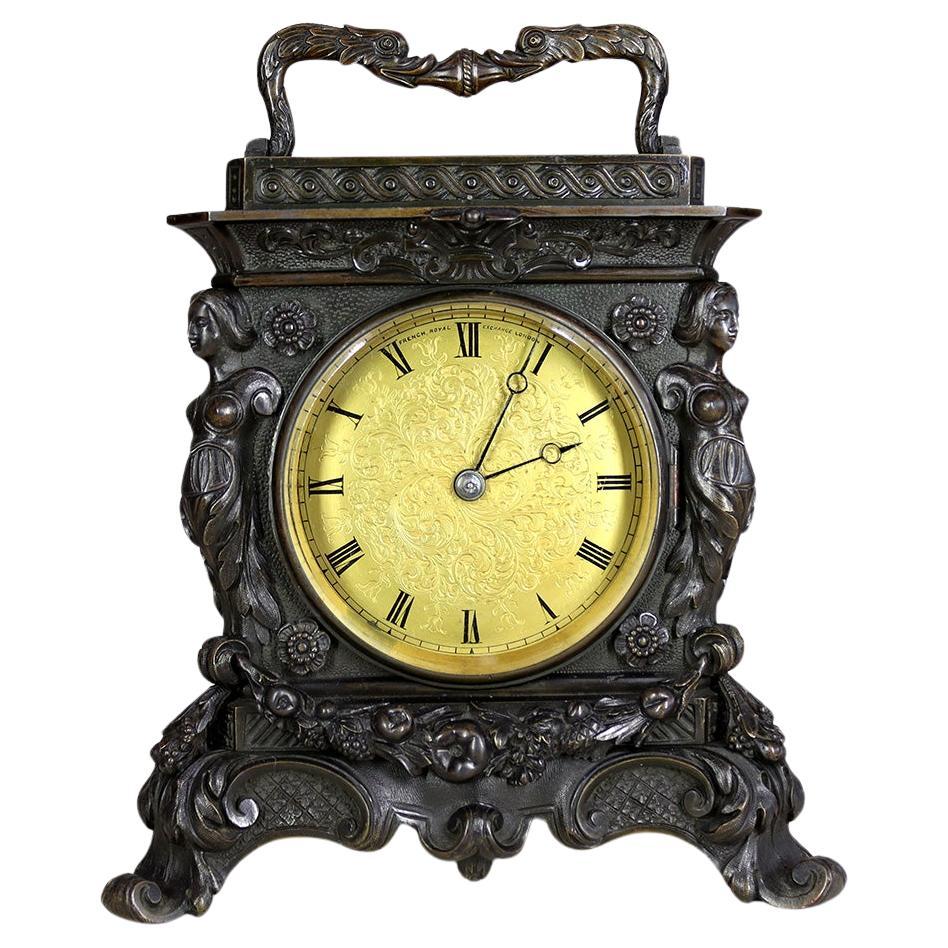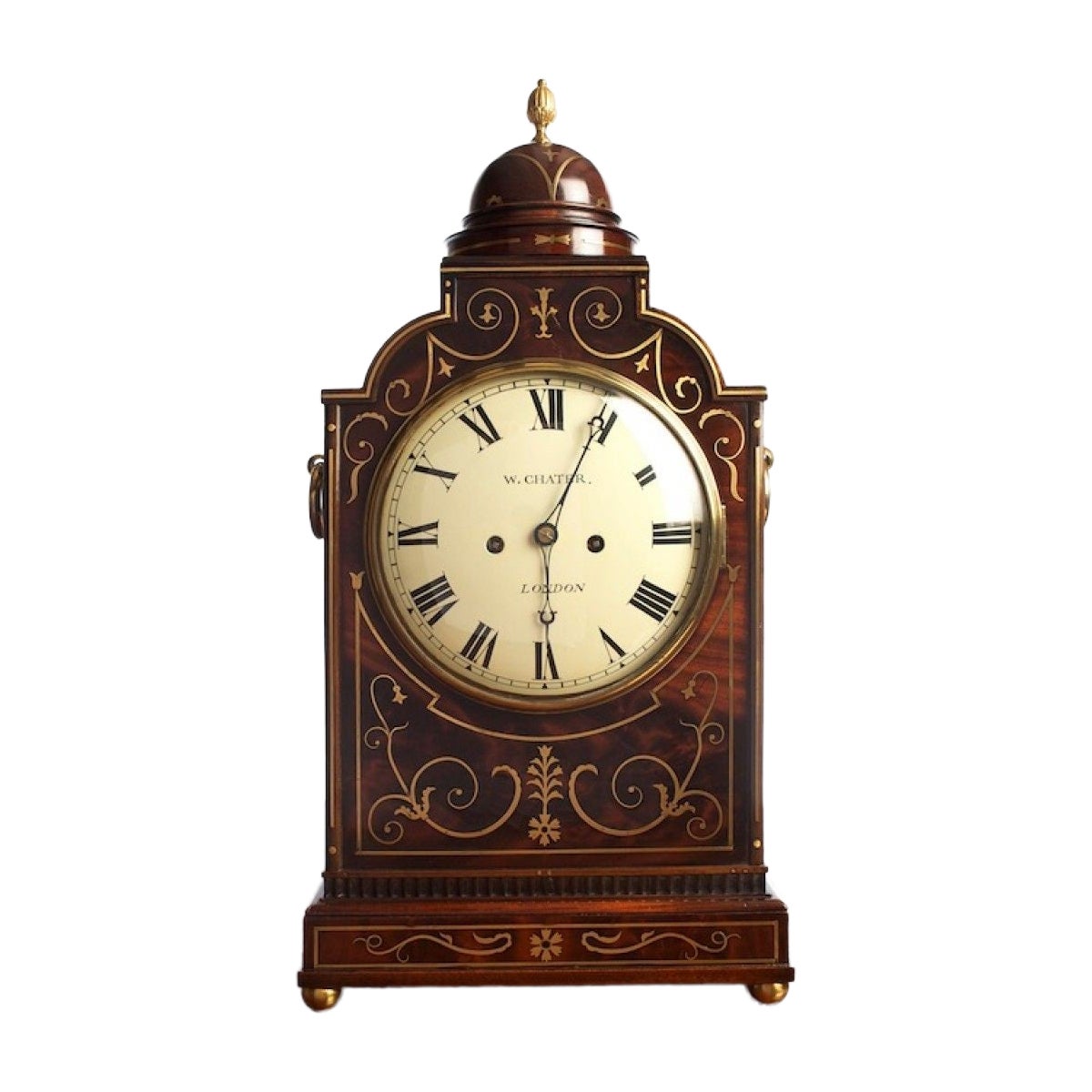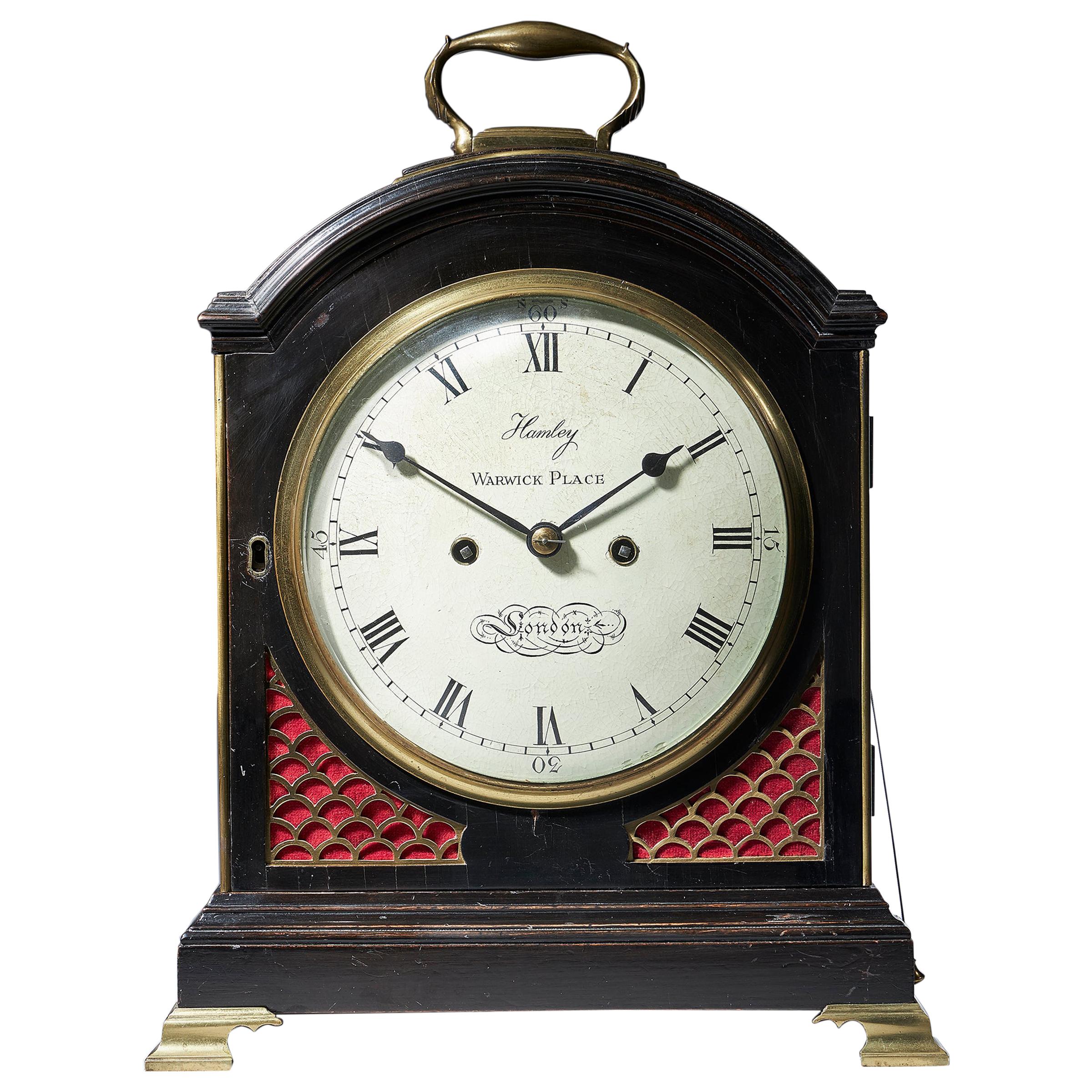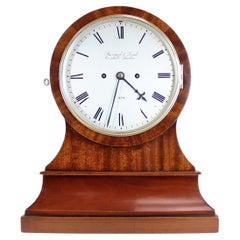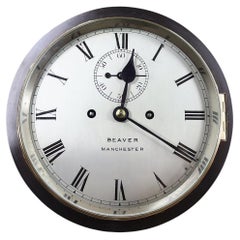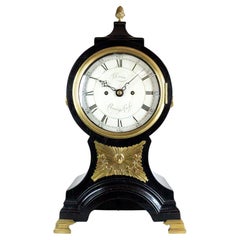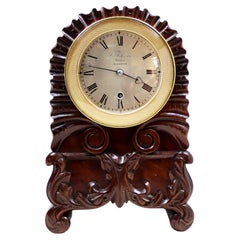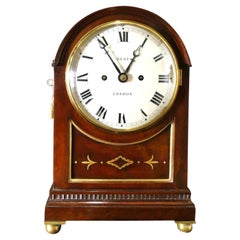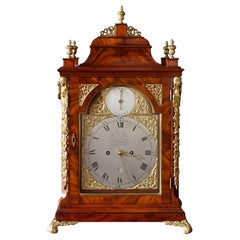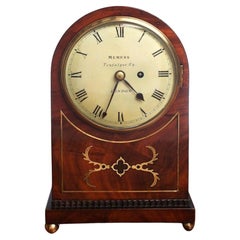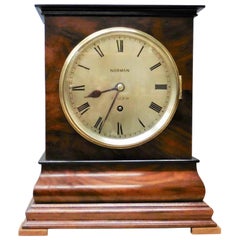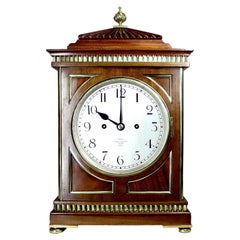
A Twin Fusee Bracket Clock By Dent
View Similar Items
Want more images or videos?
Request additional images or videos from the seller
1 of 16
A Twin Fusee Bracket Clock By Dent
$4,040.92List Price
About the Item
- Creator:Dent (Clockmaker)
- Dimensions:Height: 18.9 in (48 cm)Width: 11.03 in (28 cm)Depth: 7.09 in (18 cm)
- Style:High Victorian (Of the Period)
- Materials and Techniques:
- Place of Origin:
- Period:1900-1909
- Date of Manufacture:1900
- Condition:Wear consistent with age and use.
- Seller Location:Amersham, GB
- Reference Number:Seller: 1621stDibs: LU9135237078922
About the Seller
No Reviews Yet
Vetted Professional Seller
Every seller passes strict standards for authenticity and reliability
1stDibs seller since 2023
5 sales on 1stDibs
Typical response time: 9 hours
Authenticity Guarantee
In the unlikely event there’s an issue with an item’s authenticity, contact us within 1 year for a full refund. DetailsMoney-Back Guarantee
If your item is not as described, is damaged in transit, or does not arrive, contact us within 7 days for a full refund. Details24-Hour Cancellation
You have a 24-hour grace period in which to reconsider your purchase, with no questions asked.Vetted Professional Sellers
Our world-class sellers must adhere to strict standards for service and quality, maintaining the integrity of our listings.Price-Match Guarantee
If you find that a seller listed the same item for a lower price elsewhere, we’ll match it.Trusted Global Delivery
Our best-in-class carrier network provides specialized shipping options worldwide, including custom delivery.More From This Seller
View AllTwin Fusee Bracket Clock By Barraud And Lund
Located in Amersham, GB
A striking drum head bracket clock by Barraud and Lund of exceptional quality. The case is made of quarter sawn mahogany with a beautifully crisp silv...
Category
Antique Mid-19th Century English Victorian Mantel Clocks
Materials
Brass
A Twin Fusee Ships Striking Bulkhead Clock
Located in Amersham, GB
A fine ship’s bell bulkhead clock striking the ‘Dog Watches’ Sequence. This eight day twin fusee clock is a rare example of a ships striking clock marking ...
Category
Antique 1850s English Industrial Wall Clocks
Materials
Silver, Brass, Bronze, Steel
John Leroux, London. Twin Fusee Balloon Clock
By John Leroux
Located in Amersham, GB
An 18th century balloon shaped bracket or table clock by John Leroux of Charing Cross, dating from circa 1790. The waisted case surmounted by a brass pineapple finial over a drum housing the movement. The dial is behind a hinged convex glazed cast brass bezel to front and brass carrying handles to sides, over hipped concave-sided section forming the base. The front has an applied mount of a sunburst mask, the rear with keyhole shaped door incorporating fine scroll-pierced sound fret set within the frame of the case, on generous cavetto moulded skirt base incorporating break-arch recess to apron and with ogee bracket feet.
The five knopped pillar twin fusee bell striking movement with rounded angles to the rectangular plates and anchor escapement regulated by a long bob pendulum with an effective length of approximately 11.5 inches, the backplate signed J. Leroux, London to centre, the 7 inch circular single sheet silvered brass Roman numeral dial signed Leroux, Charing Cross to centre, with fine pierced steel hands and Arabic five minutes to outer track.
An identical clock is illustrated in English Bracket and Mantel Clocks by Andrew Nicholls...
Category
Antique 18th Century English George III Mantel Clocks
Materials
Brass
Miniature Single Fusee Bracket Clock By William Johnston, Strand, London
By Johnson
Located in Amersham, GB
An extremely small single fusee bracket clock in a scalloped mahogany case. The eight day movement having a half deadbeat escapement with a T bar pendulum with hold fast, is beautifu...
Category
Antique 1830s English William IV Table Clocks and Desk Clocks
Materials
Brass, Ormolu
A Unique Twin Fusee English Carriage Clock by James Moore French
By Santiago James Moore French
Located in Amersham, GB
A one of a kind english twin fusee carriage clock by James Moore French. The eight day movement has a large English jewelled level escapement with compensated bimetallic balance. The movement is wound and set through a round glazed door at the back and can be regulated from the outside as the fast/slow arm extends through the back of the case with rack striking the hour and half hour on blued steel gong with trip repeat.
The gilt dial is signed as is th back plate of the movement, the centre of the dial is engraved with foliate scroll work with a roman chapter and breguet style moon hands.
The unusual case of case bronze in a rococo revival style is finely chased with fluted sides flanked by Cariatids with a swag of fruit and flowers strung between them, th handle is formed of two dolphins.
James Moore French was born in 1781 in County Antrim, Ireland. He was the son of Dr Hugh French and Sarah (née Arundel) French who married his father in 1763 and died in 1783, two years after James’s birth. In 1784, the year after Sarah’s death, Dr Hugh French married a widow named Judith Woodward who was to raise the young James French as her own, alongside his own and his half siblings. As a young man, James French moved from Ireland to London, where he worked with a relative, Peter Moore...
Category
Antique 19th Century English Rococo Revival Carriage Clocks and Travel C...
Materials
Brass, Bronze, Steel
Goliath Single Fusee Dial Clock or Station Clock
Located in Amersham, GB
This giant single fusee dial clock would have been made for a public space like a railway station. Made By Swinden and Sons of Birmingham, it has a su...
Category
Antique 1880s English Late Victorian Wall Clocks
Materials
Brass, Steel
You May Also Like
Edwardian Mahogany Bracket Clock, Dent, London
By Dent
Located in Norwich, GB
Edwardian Double Fusee Bracket Clock, Dent, London
Edwardian bracket clock housed in a mahogany arch top case with inset front panel banded in brass with brass inlay, stepped plinth...
Category
Antique Early 1900s English Table Clocks and Desk Clocks
Materials
Mahogany
George III Mahogany Twin Fusee Verge Bracket Clock by Thomas Pace, London
By Thomas Pace
Located in Norwich, GB
George III Bell Top Bracket Clock
Fine flame mahogany case with ormolu mounts and ormolu caryatids standing on bracket feet. Silvered dial with subsidiary dial for strike/silent,...
Category
Antique 1780s English George III Table Clocks and Desk Clocks
Materials
Mahogany
Regency Mahogany English Fusee Bracket Clock by Memmes, London
Located in Norwich, GB
Regency bracket clock in an arch top case with brass inlay and dentil moulding, side carrying handles and standing on four brass ball feet.
Painted dial with Roman numerals and original spade hands signed ‘Memess, Trafalgar Square, London’.
Glazed rear door to the fine quality eight day single fuse movement with arch shaped plates and ‘regulating’ pendulum. C.1820.
‘Watchmakers and clockmakers of the world’ by Brian Loomes...
Category
Antique 1820s English Early Victorian Table Clocks and Desk Clocks
Materials
Mahogany
Mahogany Library Fusee Bracket Clock by Norman, Pimlico
Located in Norwich, GB
Library bracket clock by Norman, Pimlico
Finely figured mahogany case with ebony mouldings standing on a stepped moulded plinth and resting on pad feet with bevelled glass viewi...
Category
Antique 19th Century British More Clocks
Materials
Mahogany
Rare Antique Georgian Flame Mahogany Twin Fusee Bracket Mantel Shelf Clock 16"
Located in Dayton, OH
Antique 19th century Georgian, key wind, double / twin fusee bracket clock with pull chime cord. Flame mahogany case with oxbow top and carved pinwheels and scrolls. Sides feature br...
Category
Antique 19th Century Mantel Clocks
Materials
Enamel
$2,400 Sale Price
20% Off
George III Mahogany English Fusee Bracket Clock by William Chater, London
Located in Norwich, GB
George III Bracket Clock.
Stunning mahogany case with Cupola top surmounted by a ‘pineapple’ finial, profusely inlaid with brass, fishscal...
Category
Antique 1810s English George III Table Clocks and Desk Clocks
Materials
Mahogany
Recently Viewed
View AllMore Ways To Browse
Antique Mantel Clocks 1800S
Second Empire Clock
Japanese Fish Plate
Emperor Clock
Clock Trade Sign
Antique Chronometer
African Brass Plate
Used Marine Compass
George Bracket Clock
Navy Clock
Key Trade Sign
Antique Russian Clock
Antique Russian Clocks
Three Train Clock
Japanese Compass
Chronometers
Fish Clock
Acorn Clocks
